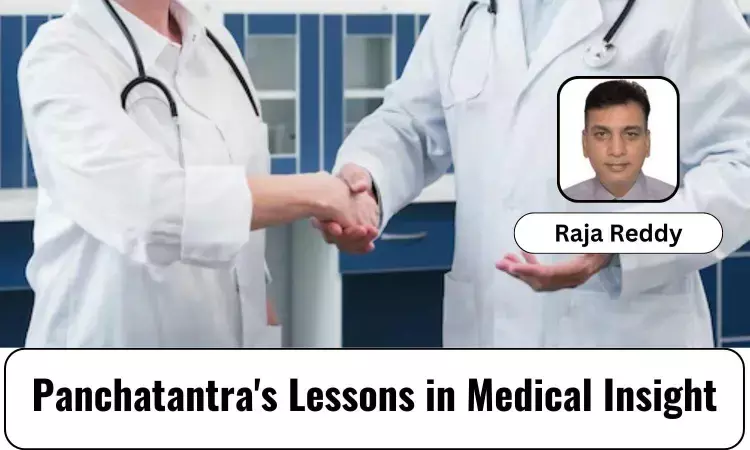- Home
- Medical news & Guidelines
- Anesthesiology
- Cardiology and CTVS
- Critical Care
- Dentistry
- Dermatology
- Diabetes and Endocrinology
- ENT
- Gastroenterology
- Medicine
- Nephrology
- Neurology
- Obstretics-Gynaecology
- Oncology
- Ophthalmology
- Orthopaedics
- Pediatrics-Neonatology
- Psychiatry
- Pulmonology
- Radiology
- Surgery
- Urology
- Laboratory Medicine
- Diet
- Nursing
- Paramedical
- Physiotherapy
- Health news
- Fact Check
- Bone Health Fact Check
- Brain Health Fact Check
- Cancer Related Fact Check
- Child Care Fact Check
- Dental and oral health fact check
- Diabetes and metabolic health fact check
- Diet and Nutrition Fact Check
- Eye and ENT Care Fact Check
- Fitness fact check
- Gut health fact check
- Heart health fact check
- Kidney health fact check
- Medical education fact check
- Men's health fact check
- Respiratory fact check
- Skin and hair care fact check
- Vaccine and Immunization fact check
- Women's health fact check
- AYUSH
- State News
- Andaman and Nicobar Islands
- Andhra Pradesh
- Arunachal Pradesh
- Assam
- Bihar
- Chandigarh
- Chattisgarh
- Dadra and Nagar Haveli
- Daman and Diu
- Delhi
- Goa
- Gujarat
- Haryana
- Himachal Pradesh
- Jammu & Kashmir
- Jharkhand
- Karnataka
- Kerala
- Ladakh
- Lakshadweep
- Madhya Pradesh
- Maharashtra
- Manipur
- Meghalaya
- Mizoram
- Nagaland
- Odisha
- Puducherry
- Punjab
- Rajasthan
- Sikkim
- Tamil Nadu
- Telangana
- Tripura
- Uttar Pradesh
- Uttrakhand
- West Bengal
- Medical Education
- Industry
Beyond the Scalpel: Panchatantra's Lessons in Medical Insight

As mentioned by a well-known Vascular Surgeon, "Every patient's well-being depends on precise, critical thinking. In medicine, critical thinking is not just about analyzing symptoms. It is about judging a multitude of factors, from patient history to diagnostic outcomes, to make knowledgeable choices." A doctor, much like a traveller or a hermit, finds deeper meaning in every experience, gaining understanding from every patient meeting. An experienced Physician, like a Guru, shares not only knowledge but also the wisdom of their journey. While medical books lay the groundwork, it is interesting how stories from other fields can enhance mental skills. This is why the Panchatantra is not just a set of stories; it is a treasure of wisdom. For any expert, accepting such varied learning resources can offer unmatched understanding and improve critical thinking.
The Elephants and the Mice Story: Respect & Rely: Together We Thrive
Once in a forest, there was a group of Mice living without disturbance. They had made their homes, and burrows, creating an intricate network underground. Their calm existence was interrupted when Elephants started using the area for fun. The Elephants, unaware of the Mice's homes below, would step on the ground, inadvertently harming many mice. The Mouse Leader, concerned for his community, approached the Elephant Leader with a request. He said, "O great Elephant Leader, our homes are getting damaged. Please find another spot for your games, so we can live together in peace." The Elephant Leader, being wise and compassionate, replied, "We didn't know we were causing this. We will find another spot." In gratitude, the Mouse Leader proposed help if the Elephants ever faced trouble. The Elephant Leader thanked him but was unsure how the small Mice could assist the large elephants. Yet, time showed the value of this bond. Later, when the Elephants were caught by hunters, the mice came, biting the ropes and freeing them.
This story gives essential lessons,
Holistic View and Coexistence. In medicine, just as in the forest, it is imperative to recognize and respect every part, no matter how seemingly insignificant. Whether it is a minor symptom, a nurse's observation, or a patient's anecdotal comment, every detail can be crucial. It underscores the idea that every role, every specialty, from the most celebrated surgeon to the humblest assistant, has a vital part to play in patient care.
Avoid Underestimating. Just as the Elephant King initially doubted the Mice's capability to help, it is crucial for doctors not to underestimate insights or suggestions from unexpected sources. It could be a less experienced colleague or a patient's family member who provides the missing piece in a diagnostic puzzle.
Interdependence. No doctor, regardless of their ability, can work in isolation. There will be times when a doctor might need help from a colleague from another specialty or even from non-medical staff. Recognizing this interconnectedness is crucial for effective patient care.
This tale serves as a reminder that, in medicine, as in nature, mutual respect and interdependence are foundational. Every interaction and every role are significant.
Disclaimer: The views expressed in this article are of the author not of Medical Dialogues. The Editorial/Content team of Medical Dialogues has not contributed to the writing/editing/packaging of this article.
An accomplished pharmaceutical expert with over 30 years of experience in the industry. Commencing his career as a Medical Representative, he has embraced diverse roles throughout his professional journey and currently excels as Director of Operations Sri Lanka at Servier International. Having earned a degree in Life Sciences and an MBA, he has continued to refine his expertise through prestigious programs, including an Advanced Certificate in Marketing from IIM K and an Executive Post Graduate Diploma in International Business from IIFT, Delhi.


